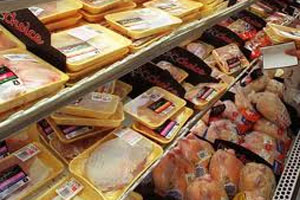Coalition seeks stricter labelling of GMO-fed meat

A new German coalition government, if it’s formed, plans to seek tougher regulations in the European Union for labeling meat from farm animals that have been fed genetically modified food.
Angela Merkel’s conservatives and the Social Democrats (SPD) are starting a decisive week of German coalition talks and are negotiating policies.”The coalition would seek an EU labelling duty for products from animals which have been fed with genetically-modified plants,” said a draft of a coalition agricultural policy document seen by Reuters on Monday.
Any such policy would have to be agreed and approved by the European Union via a lengthy process.
If introduced, the labels could potentially have a significant impact on livestock production as many European consumers might be reluctant knowingly to eat GMO-fed meat.
Currently most soybean-based animal feed, which is mainly imported from the US and South America, contains GMOs while other grains that are often domestically grown for animal feed mostly do not. Soy-based feed is valued and widely used for its high protein content.
The draft agricultural policy document said the conservatives and SPD have not yet been able to agree whether to continue current German policy restricting GMO cultivation.
A decision will be made later about whether Germany would make use of possible new EU rules which would enable countries to prevent farmers from growing GMO crops even if they had been approved for cultivation at EU level, the document said.
Former German Agriculture Minister Ilse Aigner had taken a tough stand against GMO cultivation but she left the government after the German election in September to return to local politics.
A new coalition would start a new initiative to improve welfare of farm animals, the document said. Restrictions on use of antibiotics on farm animals agreed before the election will be introduced as planned, it said.
The coalition would also press for an EU-wide ban on animal cloning and an EU ban on imports of cloned animals or their meat, it said.
The coalition would also seek EU-wide freedom from patent laws on conventional plant seeds.
Some seed companies have caused controversy by seeking to stop farmers producing seeds which are patented.
Reuters












